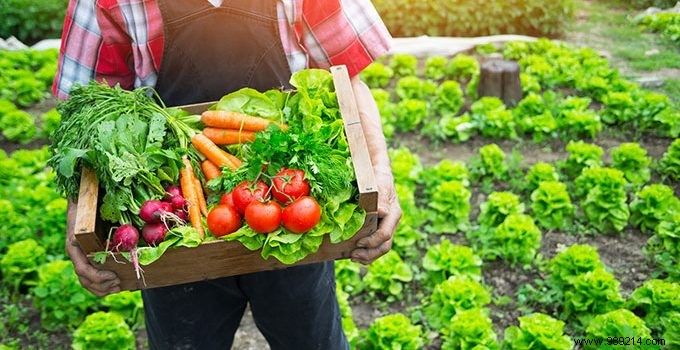
To make food taste tastier and avoid food waste, you can use simple and easy methods like recycling. The kitchen is a real paradise that can feed potted plants, but also the plants in your vegetable garden. To combine these two complementary terms:gardening and recycling, here are some smart ideas.

In a year, about 5.4 kg of coffee is consumed by a French person. Indeed, France is one of the worshipers of black gold. Unfortunately, once used, the coffee grounds are immediately thrown away even though they can be useful for gardening. In addition, it is an excellent repellent of snails and other slugs.
This substance is an excellent fertilizer that can largely replace chemical manures. When it comes into contact with the soil, the coffee grounds gradually release nitrogen, phosphorus and potassium. To have a promising result, just mix it in equal parts with soil to promote the growth of young shoots.
Fresh coffee grounds are an excellent compost activator. Observe well, earthworms love it since it facilitates their digestion. In other words, earthworms are more active in their work of transformation if you put this substance at the foot of hydrangeas or tomato plants.

The peelings come from organic foods. They are rich in nutrients, as even the seeds, pits, pods and tops are edible. You can then enjoy the benefits of the food in question while avoiding waste. By adopting this eco-responsible approach, you reduce your waste in a profitable way.
Rhubarb is also advantageous in the field of gardening. In 3 liters of boiling water, add 200 grams of rhubarb leaf and leave for two days. Then, spray this vegetable manure on your plants, especially on roses and other plants in your orchard. Other tips:put the broccoli stems next to the plants to keep flies away. Lemon rinds will keep ants at bay while crushed fish bones promote plant growth.
And finally, garlic peelings are natural repellents. They ward off pests that tend to smash the plants in your orchard. Garlic slurry, on the other hand, is an excellent aphid repellent. It is a mixture obtained between the crushing of the pod and the skin boiled in water.

A real source of minerals (magnesium, calcium and potassium), eggshells are essential for the development of young plants. These shell shards do indeed turn the earth into nutrients. So, instead of throwing them in the trash, you can crumble them and arrange them all over your flower pot.
Unsalted cooking water is also very good for watering green plants. You can, for example, use vegetable water or eggs collected during cooking. It is an economical way to bring vitamins and minerals to your vegetable garden. However, let the water cool before pouring under the plants, except for watering the potatoes. Hot water kills weeds.
Very little known, red wine can also work miracles in the field of gardening. Simply mix the uneaten remainder with the irrigation water to provide trace elements and antioxidants. This trick is also valid for beer bottoms.

To maintain the vitality of your plants, you must alternate wet layers with dry layers. At least mix them together twice a month. Moisten your compost with a little water to improve its quality. From time to time, do not forget to add a little soil.
If you want to have an authentic and original garden, avoid throwing away old kitchen utensils. They are no longer useful in the kitchen, but are very useful in gardening. You can make your own flower pots using empty tin cans or some tea cans. Old pots or pans, on the other hand, will serve as cachepots and the translucent plastic trays are transformed into mini greenhouses where you can deposit your seeds.
Spoons and forks will serve as gardening tools if you don't have them. Old clogs and old safety shoes offer a slightly quirky touch to your vegetable garden. To create the frames outside, use screens or old windows. They will be able to grow the seedlings sheltered from bad weather and insect pests.